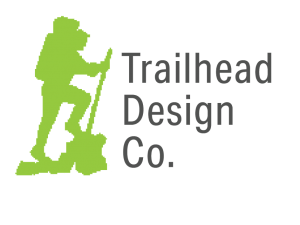
Recent Blog Posts

Recent Blog Posts

Mark O. Lewis, PhD is an innovation expert and business strategist with a passion for business research that leads to actionable insights. His research is aimed at an executive audience and based on engagements with industry leaders in the logistics, diversified computer systems, and healthcare industries. This work has appeared in MIS Quarterly Executive, MIT Supply Chain Strategy, and other leading outlets, and his case study on innovation in a long-term outsourcing relationship has been used by over 10,000 students in 29 countries.
Lewis received his Bachelor’s degree from the University of Georgia and an MBA, MS, and PhD from Georgia State University’s Center for Process Innovation, an industry-focused research unit centered on exploring technology-enabled innovation. His research has won national and international awards and has been sponsored by companies such as UPS, Hewlett Packard, Chrysler, SAP, Georgia Pacific, and Gartner as well as several smaller start-up organizations. Prior to entering academia he was at IBM Global Services, where he worked with a group of change-agents to speed the adoption of advanced technology across IBM. He is currently an Assistant Professor of Management at Appalachian State University, teaching courses in design thinking, innovation, and strategy.

My research is interdisciplinary and multi-level, and it coalesces around the broad areas of strategy, technology and innovation. Strategic innovation is the process by which an organization reinvents or redesigns its strategy to drive change, enhance value creation across stakeholders, and, ultimately, to sustain itself. Thus, it focuses on the art, science, and process of building, implementing, and constantly evaluating strategy in organizational settings. It integrates traditional approaches to strategic management, with the tools, frameworks, and values related to design thinking and innovation. As my record indicates, most of my research focuses specifically on the way information technology is used in organizational settings to help organizations achieve competitive advantage. I look toward the future, it is at this intersection and integration of disciplines and “schools of thought” that great opportunity for impact and contribution exists.
My passion is to understand how organizations can improve their capacity to innovate, change, and reinvent themselves through a more effective strategic innovation process, and re-conceptualizing the role of information technology. By developing and cultivating their strategic innovation capability, organizations will sustain themselves and create greater value for a broader range of stakeholders. While using theories and frameworks from diverse disciplines (strategy, social and cognitive psychology, innovation management, information systems), I examine how strategy and innovation occur within individuals, teams, organizations, inter-firm relationships, and even value chains and how it ultimately impacts value creation for diverse stakeholders. In doing so, I explore strategic innovation in both established and entrepreneurial firms and at multiple levels of analysis (network, inter-firm, organizational, and individual).
I resist reductionism when studying strategic innovation, and have a strong bias toward holistic and systems orientations to understand organizational systems and the inherently complex process of strategic innovation. In most cases, I explore these issues through in-depth, longitudinal qualitative case studies and have a strong action research orientation, though I believe strongly in the power of both qualitative and quantitative techniques if adequately applied. My current and future research streams are mentioned below.

Lewis, M., Hayward, S., Baxter, R., & Coffey, B. “Stakeholder Enrolment and Business Network Formation: A Process Perspective on Technology Innovation.” International Journal of Technoentrepeneurship. Forthcoming.
Hornyay, R., Lewis, M., & Sankaranarayanan, B. “Radio Frequency Identification–Enabled Capabilities in a Healthcare Context: An Exploratory Study.” Health Informatics Journal, vol. 22, no. 3, 562–578.
Lewis, M., Hayward, S., & Kasi, V. 2015. “The Peril of One: Architecting a Sourcing Strategy at Edwards Paper Co.” Business Case Journal, vol. 22, no. 1.
Lewis, M., & Elevar, R. 2014. “Managing and Fostering Creativity: An Integrated Approach.” International Journal of Management Education, vol. 12, no. 3, 235–247.
Lewis, M., Hayward, S., & Kasi, V. 2013. “The Hazards of Sole Sourcing Relationships: Challenges, Practices, and Insights.” Advanced Management Journal, vol. 78, no. 3, 28–37.
Lewis, M., Baxter, R., & Pouder, R. 2013. “The Development and Deployment of Electronic Personal Health Records: A Strategic Positioning Perspective.” Journal of Health Organization and Management, vol. 27, no. 5, 577–600.
Lewis, M., Sankaranarayanan, B., & Rai, A. 2012. “Technology and Context: A Sociomaterial Perspective on Technology Enabled Change.” Academy of Management Annual Meeting Proceedings.
Lewis, M. 2011. “An Integrated Approach to Teaching the Capstone Strategic Management Course: A Left- and Right-Brained Approach.” Business Education Innovation Journal, vol. 3, no. 2, 66–72.
Lewis, M., Mathiassen, L., & Rai, A. 2011. “Scalable Growth in IT-enabled Service Provisioning: A Sensemaking Perspective.” European Journal of Information Systems, vol. 20, no. 3, 285–302.
Gogan, J., & Lewis, M. 2011. “Peak Experiences and Strategic IT alignment at Vermont Teddy Bear.” Journal of Information Technology Teaching Cases. No. JIT031-PDF-ENG
Rai, A., Venkatesh, V., Bala, H., & Lewis, M. 2010. “Transitioning to a Modular Enterprise Architecture: Drivers, Constraints, and Actions.” Management Information Systems Quarterly Executive, vol. 9, no. 2.
Lewis, M., Hornyak, R., Patnayakuni, R., & Rai, A. 2008. “Business Network Agility for Global Demand–Supply Synchronization: A Comparative Case Study in the Apparel Industry.” Journal of Global Information Technology Management, vol. 11, no. 2, 5–29.
Lewis, M., Young, B., Mathiassen, L., Rai, A., & Welke, R. 2007. “Business Process Innovation Based on Stakeholder Perceptions.” Information, Knowledge, and Systems Management, vol. 6, nos. 1-2, 7–27.
Lewis, M., Rai, A., Forquer, D., & Quinter, D. 2007. UPS and HP: Value Creation Through Supply Chain Partnerships. London, ON: Ivey Publishing. No. 907D02-PDF-ENG (Over 8,000 copies sold to date.)
Lewis, M., Rai, A., & Mathiassen, L. 2016. The Enactment of Interorganizational Relational Strategy and the Dynamics of Governance. Academy of Management National Meeting, Anaheim, CA.
Lewis, M., & Pouder, R. 2015. Highland Brewing Company: Nipping at our Heels and Sitting on our Heads. North American Case Research Association Annual Conference, Orlando, FL.
Lewis, M., Hayward, S., & Baxter. R. 2013. Architecting a Sourcing Strategy: The Peril of One and the Downside of Many at Atlantico. North American Case Research Association Annual Conference, Victoria, BC.
Lewis, M., Sankaranarayanan, B., & Rai, A. 2012. Technology and Context: A Sociomaterial Perspective on Technology Enabled Change. Academy of Management National Meeting, Boston, MA.
Lewis, M., Sankaranarayanan, B., & Rai, A. 2011. RFID-Enabled Innovation and Its Impact on Healthcare Process Performance: A Multilevel Analysis. International Conference on Information Systems, St. Louis, MO.
Lewis, M., & Baxter, R. 2010. Negotiating the Pack: The Development and Deployment of Electronic Personal Health Records. TIM Track, Academy of Management National Meeting, Montréal, QC.
Gogan, J., Lewis, M., Sankaranaryanan, B., & Johnson, E. 2010. Aiming at a Moving Target: IT Alignment in Toy Companies. European Conference on Information Systems, Perto, South Africa.
Lewis, M., Sankaranarayanan, B., & Rai, A. 2009. Exploring Transition in Healthcare Information Systems: A Process Perspective on RFID Enabled Change. 29th Annual International Conference on Information Systems, Phoenix, AZ.
Baxter, R., & Lewis, M. 2009. The Influence of Industry Structure on the Development and Deployment of a Personal Health Record System. Organizations and Society in Information Systems (OASIS) Conference, Phoenix, AZ.
Lewis, M., Sankaranarayanan, B., & Rai, A. 2009. RFID-Enabled Process Capabilities and Their Impacts on Healthcare Process Performance: A Multilevel Analysis. European Conference on Information Systems, Verona, Italy.
Lewis, M., Mathiassen, L., & Rai, A. 2009. Developing IS-Enabled Capabilities for a Vendor: A Case Study. Americas Conference on Information Systems, San Francisco, CA.
Lewis, M., & Rai, A. 2007. Building Sustainable Partnerships. MISQ-Executive Workshop.
Lewis, M. 2005. Sensemaking in Strategic Outsourcing Partnerships: A Multilevel Investigation of IT enabled Dynamic Capabilities. Research Poster in the IFIP TC 8 WG 8.6 International Working Conference Notebook, Atlanta, GA.
Lewis, M., & Rai, A. 2006. Building Sustainable Partnerships: Ensuring Your Supply Chain Partnerships are Built to Last. Supply Chain Strategy, MIT.
Rai, A., Sambamurthy, V., & Lewis, M. 2002. Adaptive Logistics and Transportation. SAP Sponsored Thought Leadership Forum on Adaptive Supply Chain Networks.
Rai, A., Ruppel, C., & Lewis, M. 2002. Sense and Respond. SAP Sponsored Thought Leadership Forum on Adaptive Supply Chain Networks.
Lewis, M., Hornyak, R., & Pouder, R. 2016. Highland Brewing Company: A Case of Product and Experience Design. Craft Beverages and Tourism, Volume 1: The Rise of Breweries and Distilleries in the United States. Forthcoming.

AppLab is multidisciplinary course that uses design thinking to solve real world problems. It is team taught with a diverse group of faculty across the university and draws students from an equally diverse set of disciplinary backgrounds. It his highly experiential, problem based, and adopts a action learning pedagogy. Click here for course brochure and click here for press related to AppLab.
I teach Strategic Management by integrating traditional strategic management frameworks and design thinking. The traditional strategic management frameworks are useful for helping students understand what strategy is and for assessing “as-is” states of organizations, but in my mind it falls short when helping to guide the creation of strategic priorities, initiatives, and measures (that move beyond incremental adjustments) as part of a strategic planning process. Therefore, to fill this gap, I utilize design thinking in the formulation stages to support ideation and support implementation efforts. Within strategic management I teach the following courses:
This course explores individual level factors that can impede and enhance creativity, and then does a deep dive on the design thinking process. We conclude with a short module on the impact of the organizational environment for supporting design oriented work. Like most of my classes, this is also centered on a real world project with external clients.

My consulting is delivered through Trailhead Design Co. Trailhead’s purpose is to help organizations achieve Peak Performance by integrating innovation and strategy. We do this by helping you drive innovation throughout your organization and carve out a unique position in your industry to create competitive advantage. This integration of innovation and strategy leads to a powerful engine that drives sustainable growth. To achieve this, we focus on two key practice areas:
Innovation Workshops: Our innovation workshops focus on helping you build the internal capabilities to continuously innovate. We offer them at three levels:
Innovation Consulting:
Strategy Workshop: Our strategy workshop focuses on helping you build internal strategic planning capabilities so you can drive the process yourself, continuously.
Strategy Consulting: Let’s face it. You are busy. In this offering we do the heavy lifting. Where the most renowned strategic consultancies have MBAs, our team generally has PhDs. Yet, given lower overhead, we work for a fraction of the cost.
Trailhead’s website is currently underdevelopment and will go live in Summer, 2017. Until then, contact me at markolewis@gmail.com for more information. We would love to help your organization become alive again, by enhancing its capacity to innovate and positioning it for continued success!
